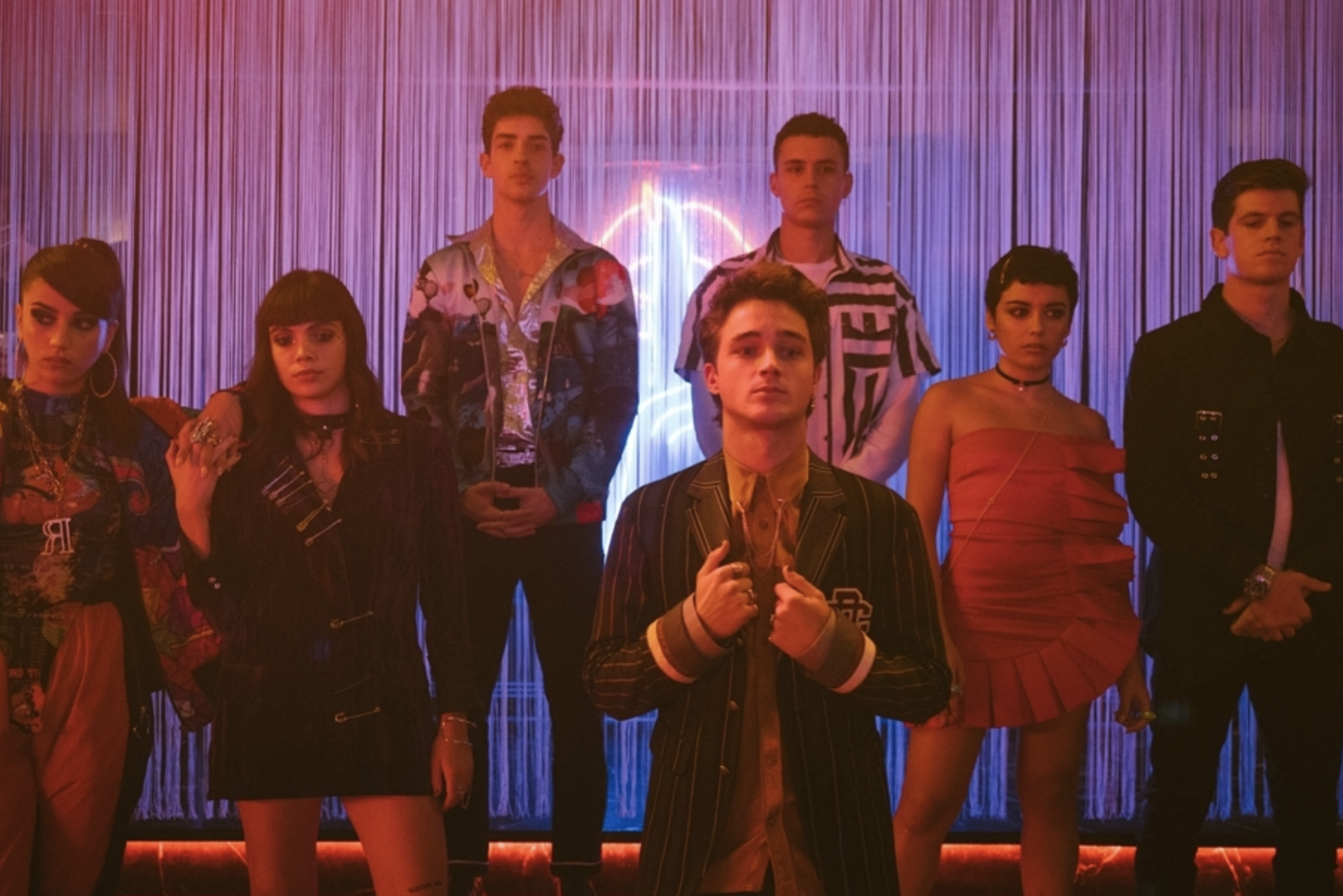Much has been written about the inherent stupidity of the phrase “guilty pleasure.” It’s a cliché; it hints at a “moralistic understanding” of art; it’s a consequence of our “late capitalist illusion that somehow the mores and values of the scholarly leisure class are the set of rules by which we should all be living our lives.” It might seem heavy-handed to review “Elite,” Netflix’s teen soap opera, while arguing against the stratification of cultural capital. But when “trashy” is one of the first adjectives used to describe the show, it becomes necessary to make some things clear.
“Elite” has no great aspirations: Its only aim is to entertain, and it excels at this purpose. The recently released fourth season delivers on the show’s melodramatic promise and confirms that it’s one of the best pieces of entertainment on streaming right now. To call it a “guilty pleasure” is to demean both yourself and the show.
Set in Las Encinas, a private prep school for Spain’s privileged class, the fourth season of “Elite” faces a character-related challenge for the first time. The graduation of five main students at the end of last season forced showrunners to introduce a new set of strident characters.
Benjamín (Diego Martín) is an exacting principal with the charisma of a tech CEO who sets out to discipline the students of Las Encinas. Meanwhile, his trio of children create nothing but chaos. Ari (Carla Díaz), the ruthlessly competitive eldest daughter, entangles herself in a love triangle between best friends Guzmán (Miguel Bernardeau) and Samuel (Itzan Escamilla). Patrick (Manu Ríos), the middle child, rifts one of the show’s steadiest couples. And Mencía (Martina Cariddi), the rebellious youngest daughter, tests the limits of her freedom as she begins dating problem-student Rebeka (Claudia Salas). There’s also Phillippe (Pol Granch), a French prince in hiding from the rumors of his past who falls in love with Cayetana (Georgina Amorós), the daughter of Las Encinas’ cleaning lady. The season’s framing device? A New Year’s Eve party where one of the girls may or may not have been killed.
If this sounds like a bit too much, that’s because it is. “Elite” takes a maximalist approach to storytelling, and it’s very fond of archetypes. For example, a previously long-running plotline centered around bad boy Guzmán falling for studious, shy Nadia (Mina El Hammani), while Lucrecia (Danna Paola), queen bee of the school and his ex-girlfriend, machinated her revenge. But the show’s strength comes from its true interest in its characters. The drama succeeds in humanizing them — not to the point of subversion or deconstruction, but enough to build lasting sympathy.
The show employs this technique with the new cast of characters to mixed results. Ari’s controlling impulses never quite reach the campy grandeur of Lucrecia’s schemes from previous seasons, and Patrick remains an under-developed plot device to one of the season’s most exhausting plotlines. Phillippe displays some inklings of a personality, but it seems as if the showrunners decided to leave his development for the fifth and (supposedly) final season. Yet for a story filled with adults who are either sent to jail or abroad, Benjamín is a satisfying antagonist, and his evolution from iron-fisted principal to clumsy, concerned parent becomes one of the bright spots of the season.
The true delight of the season, however, is Mencía. She’s a case study of what makes “Elite” compulsively watchable: Her storyline successfully covers some controversial situations, and it gives her relationships with her father and sister the kind of depth that allows the show to deploy high-octane melodrama without seeming too far-fetched. The fact that the show can channel some semblance of emotional truth while juggling relatively unrealistic plot lines is remarkable.
As with previous seasons, class frictions persist as a source of tension. After all, the show’s premise comes from the insertion of scholarship students like Samuel in the privileged world of Las Encinas. These struggles animate the show’s fourth season; Samuel and Guzmán’s friendship is tested by the latter’s seemingly endless contempt for the working class, and Phillippe’s status both isolates him and creates a power imbalance in all of his relationships. Much of the coverage of “Elite” regards this as “class consciousness,” a phrase that’s coherent only if understood in the most literal sense, i.e. the show is aware that poor people exist. But beyond some perfunctory platitudes, it says nothing about this fact.
Nor does it need to. What makes “Elite” compelling is its clear-eyed understanding of what it is. “Elite” echoes “Gossip Girl” because it knows and accepts that it’s a soap opera about disgustingly wealthy teenagers and their less wealthy, but no less dramatic, classmates. Like “Riverdale” and “RBD” (the show’s clearest predecessor in the Spanish-speaking world), this plain acceptance allows it to lean into and exploit the genre’s tropes while still being undeniably itself. Plenty of shows and films already feature their shallow quality and tacked-on politics but aren’t really good art or enduring entertainment. For example, Disney’s “Cruella” trips over itself to make a vague point about female empowerment that actively undercuts the charm of its main character. “Elite” stands out because of its self-awareness.
Is it possible to produce an entertaining mainstream show that also makes a somewhat thoughtful political point? “Euphoria” comes close, and HBO’s remake of “Gossip Girl” promises its characters will “wrestle with their privilege in a way that (…) the original didn’t.” We’ll see. For now, audiences have “Elite,” which is, at its heart, a hedonistic show both in regard to its characters’ lives and the attitude it presupposes from the public. To call it trashy, then, is not only condescending but a mistake. Trash is repellant to the senses — it evokes flimsy plastic, the smell of rotting fish. “Elite” is like a pink cocktail: It goes down easily, is enjoyable while it lasts, and after serving its purpose, quickly dissolves from memory. Not all art has to be life-changing. Sometimes it’s enough to have fun. So forgo the guilt, and get straight to the pleasure.

















To call it trashy, then, is not only condescending but a mistake.
To call it trashy, then, is not only condescending but a mistake.